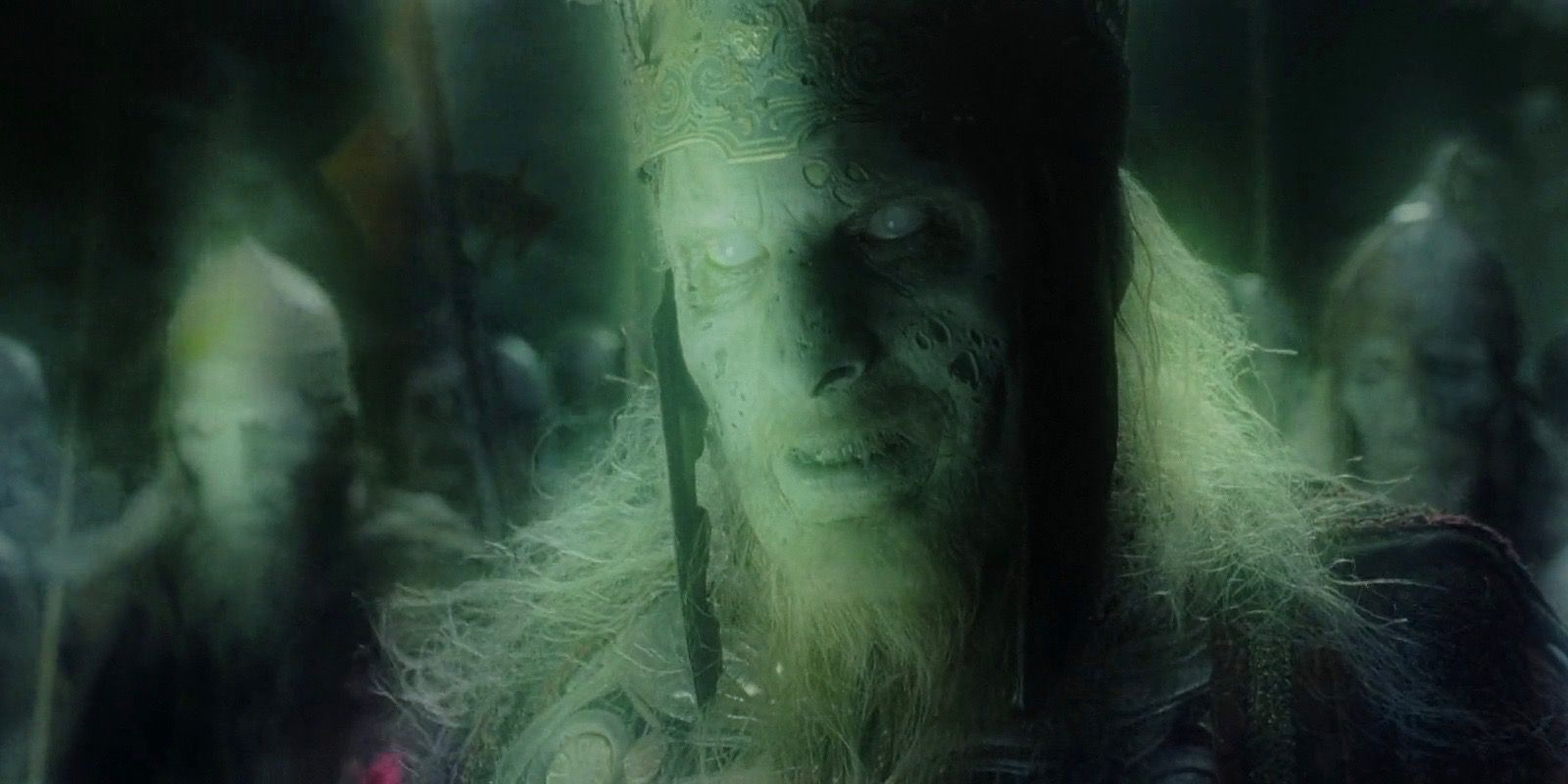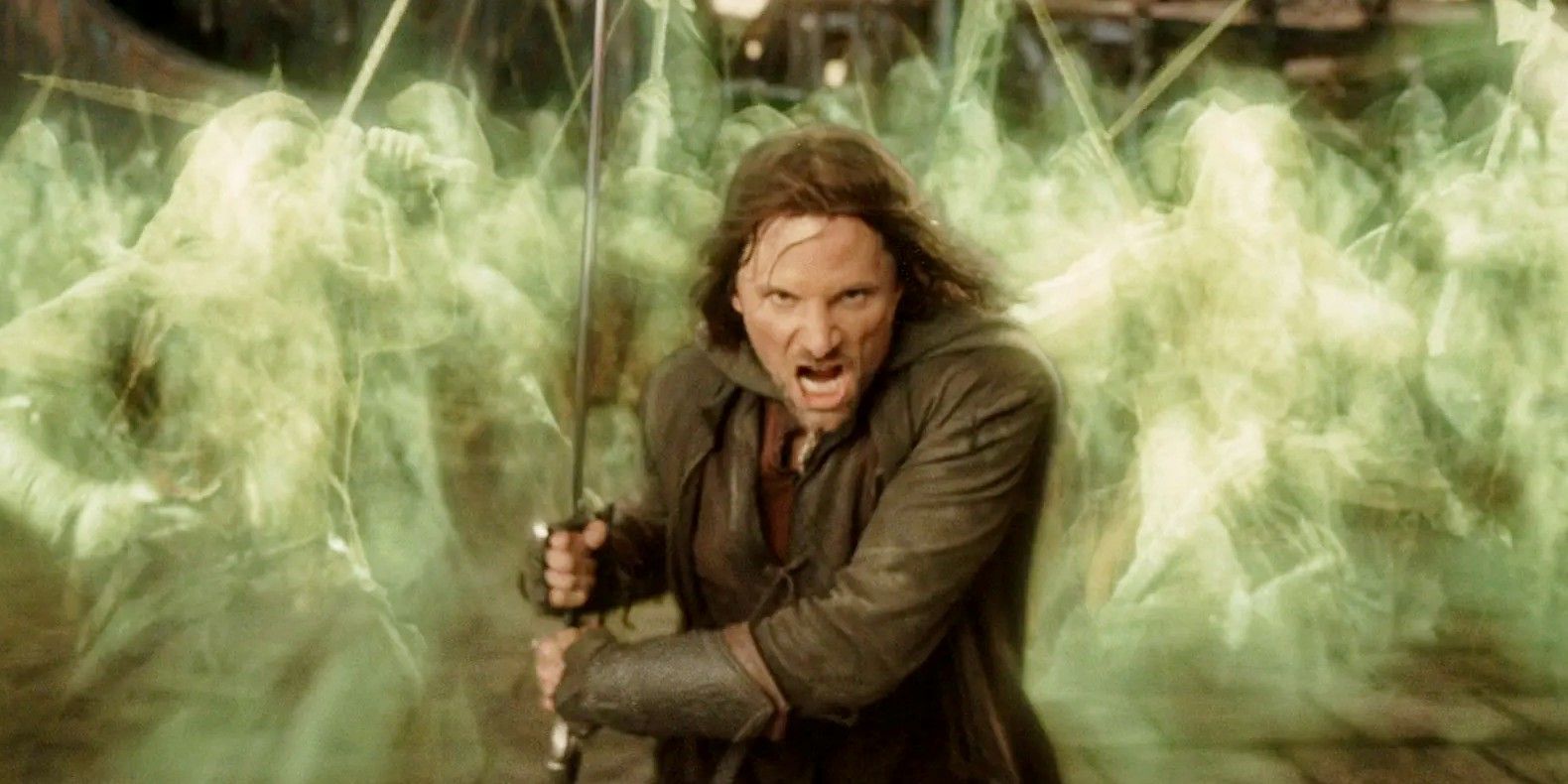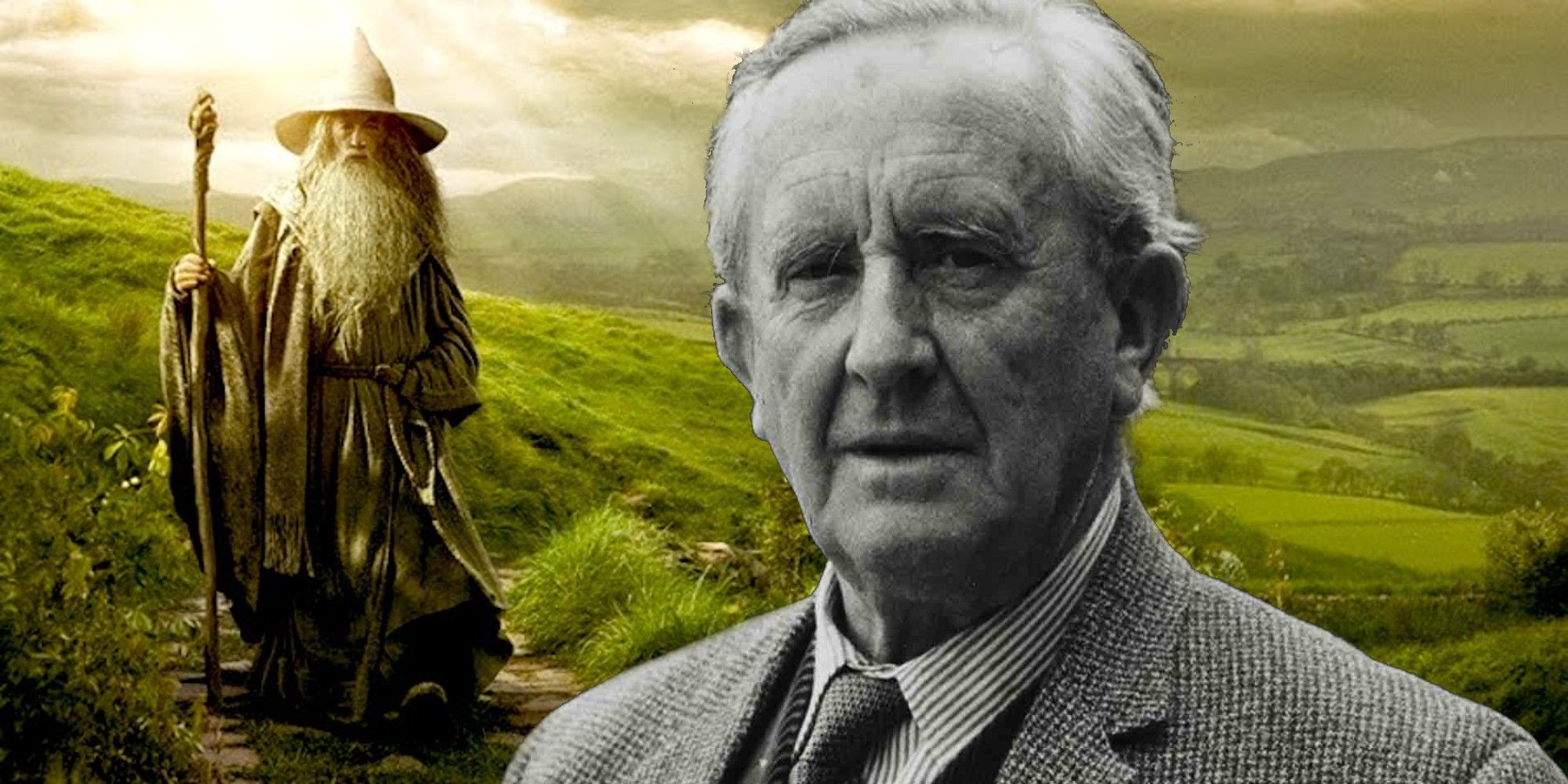
The Men of the White Mountains, who are turned into ghosts by Isildur’s curse after they refused to fulfill their oaths to fight beside him, are a critical part of the Return of the King ending, and their arrival is what turned the tide in the Battle of the Pelennor Fields. Aragorn, the heir of Isildur, convinces the Army of the Dead to fight for him against Sauron’s forces by promising to hold their oath fulfilled if they join him. True to his word, Aragorn releases them following the Battle of the Pelennor Fields, allowing the Men of the White Mountains to have peace at last.
Why Lord Of The Rings’ Dead Army Became Ghosts

The Lord of the Rings‘ Army of the Dead was turned into ghosts because Isildur’s curse prevented them from passing on from the mortal world. There is a power to oaths in Lord of the Rings that allowed Isildur’s curse to hold, despite the fact that Isildur knew no magic to enhance it with. It’s difficult to say with absolute certainty how Isildur’s curse was able to keep the Men of the White Mountains trapped in the mortal world, but the examination of other oaths in Tolkien’s world, such as the infamous Oath of Feanor, shows how powerful an oath can be.
Furthermore, it is helpful to consider the blurred lines between the mortal and unseen worlds. It would seem that the Ring Wraiths, Sauron, and the Ring Bearer are all, in one way or another, able to exist between the two worlds, at least at times. Considering the blurred connection between worlds and the inherent power of oaths in Tolkien’s universe, it would seem that Isildur’s curse blocked the Army of the Dead from the unseen world, forcing them to exist in the mortal world where they did not belong. They appear as ghosts because their bodies have decayed, but their souls are trapped by the curse and their oaths.
ROTK’s Dead Army Continues Tolkien’s Magic Ambiguity

Tolkien is intentionally vague about the nature of magic in his universe, a trend which is continued by the Army of the Dead in Return of the King. He leaves the inner workings of magic purposefully ambiguous. It can be difficult to decipher the limitations or possibilities of any type of magic – however, this is likely meant to maintain a level of awe and mystique.
Moreover, ambiguous definitions of magic’s abilities and limitations allow them to be altered when needed. This is why it’s not explicitly clear why the Men of the White Mountains became ghosts upon breaking their oaths. Even so, it is enough to know that they broke their oaths and because of it remain trapped between worlds until they fulfill their duty in The Lord of the Rings: Return of the King.





